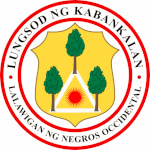Kabankalan City Charter Day in the Philippines Date in the current year: August 2, 2026
 Kabankalan City Charter Day (Adlaw Kabankalan) is a special non-working holiday in the Philippine city of Kabankalan, Negros Occidental. It is celebrated annually on August 2 to commemorate the day when Kabankalan was converted from a municipality to a city.
Kabankalan City Charter Day (Adlaw Kabankalan) is a special non-working holiday in the Philippine city of Kabankalan, Negros Occidental. It is celebrated annually on August 2 to commemorate the day when Kabankalan was converted from a municipality to a city.Kabankalan is a first-class component city in the Philippine province of Negros Occidental. It is the second most populous city in the province after the provincial capital of Bacolod, and has the second highest gross and net income in Negros Occidental, also after Bacolod.
The name “Kabankalan” derives from the word bangkal, the local name of the tree Nauclea orientalis, known in English as bur tree, canary wood, Leichhardt pine, and yellow cheesewood. It was given to the place by the first inhabitants who came to the area from neighboring settlements.
The first Europeans to arrive in what is now Negros Occidental were Augustinian missionaries in 1566. They established several missions in the area during the second half of the 16th century. At some point, the spiritual administration of Kabankalan was turned over to the Jesuits, but they were expelled from the Philippines in 1767, and the Dominicans took over.
During the Philippine Revolution, Kabankalan was part of the short-lived Republic of Negros that revolted against the Spanish authorities in 1898. In 1899, the republic surrendered to the United States and came under its protection. Under the American administration, Kabankalan was merged with the municipality of Ilog in 1903, but was reconstituted as a separate municipality four years later. The first municipal elections in Kabankalan were held in January 1908.
During World War II, Kabankalan was occupied by Imperial Japan and hosted a Japanese garrison. Much of the town’s infrastructure was destroyed during the occupation. It was freed by the combined Philippine and American troops with the help of local guerrilla units at the end of the war.
After the war, Kabankalan began to rebuild. Two sugar mills were established in the town, spurring its agro-industrial development. With the growth of Kabankalan’s sugar industry, banks and commercial establishments began to open branches there, and the town soon became a major business and trade hub in southern Negros. On August 2, 1997, President Fidel V. Ramos recognized Kabankalan’s growth by converting it from a municipality to a city.
Kabankalan City Charter Day is officially observed on August 2, but festivities on the occasion last for a week. They include official ceremonies and speeches, an agro-industrial fair with local products, various cultural events showcasing the rich history and heritage of Kabankalan, and other exciting events and activities for the city’s residents and tourists alike. This week-long festival is known as the Udyakan Festival (Udyakan sa Kabankalan).
The Udyakan Festival is one of the two major festivals celebrated in Kabankalan. The other one is Sinulog (Santo Niño Festival) in honor of the Child Jesus, which Kabankalan celebrates jointly with the city of Cebu every January.
- Category
- Anniversaries and Memorial Days
- Country
- Philippines
- Tags
- Kabankalan City Charter Day, holidays in the Philippines, regional holidays, special non-working holidays, Udyakan Festival